Philippians 2:10-11 ESV
Revelation Chapter 2
Letters to the Seven Churches in Asia Minor
Revelation Chapter 2 and 3 is directly relevant to what we learned in the first chapter, how the seven spirits under the throne of heaven, seven stars, seven angels of the seven churches and the eyes of the lord are all bound together, they are one. We can't think or talk about one, without thinking and talking about the others. John's allusions to Zechariah in Chapter one informs us that the visions above are speaking about God's divine council members, heavenly, supernatural spiritual beings God uses as agents to watch over believers. Now, in chapter two, we'll see how the workings and purpose of those spiritual beings, come to bear in Revelation Chapter 2.
Revelation Chapter 2:1-7
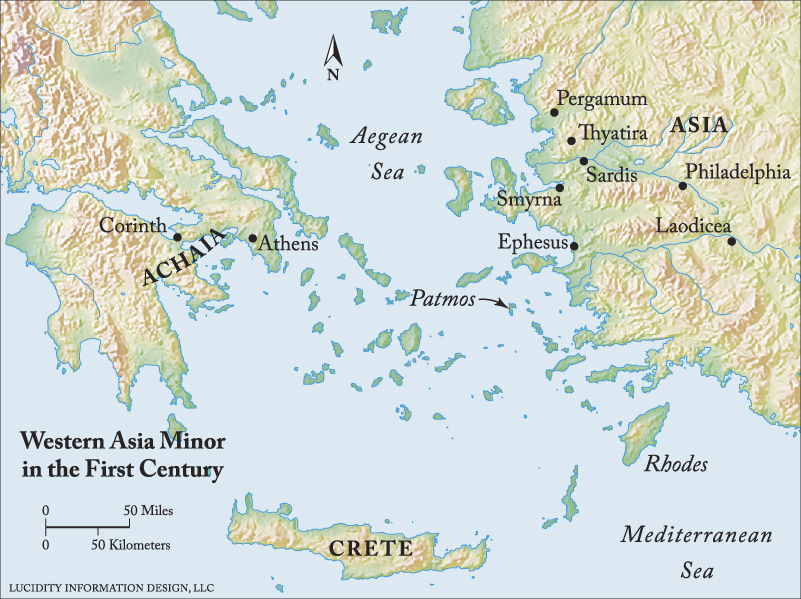
Revelation 2:1-7 English Standard Version
To the angel of the church in Ephesus write: “The words of him who holds the seven stars in his right hand, who walks among the seven golden lampstands. 2 ‘I know your works, your toil and your patient endurance, and how you cannot bear with those who are evil, but have tested those who call themselves apostles and are not, and found them to be false. 3 I know you are enduring patiently and bearing up for my name’s sake, and you have not grown weary. 4 But I have this against you, that you have abandoned the love you had at first. 5 Remember therefore from where you have fallen; repent, and do the works you did at first. If not, I will come to you and remove your lampstand from its place, unless you repent. 6 Yet this you have: you hate the works of the Nicolaitans, which I also hate. 7 He who has an ear, let him hear what the Spirit says to the churches. To the one who conquers I will grant to eat of the tree of life, which is in the paradise of God.’”
The angels of the seven churches are spiritual beings
members of the divine council
Verse 1, John is instructed to write to the angel of the church in Ephesus. Throughout the rest of chapters 2-3, the same instruction is given concerning the angels of the seven churches in Asia Minor. Few Bible scholars interpret this as writing to the human pastors of the seven churches. Taken in the context of chapter one, this view has serious flaws.
Chapter 1 makes no mention of human leadership, just of supernatural spiritual beings' leadership and supervision. That the angel of the church at Ephesus is a member of the host of heaven becomes obvious in verses 2-5, since only heavenly beings could know what is disclosed concerning the churches.
Also semantic issues come into play here in verse 1. John can't deliver a message to some heavenly being, and the phrase "to the angel of the church in Ephesus write," could just as easily be read as, "concerning the angel of the church in Ephesus write."
Revelation 1:4,11 ESV
Greeting to the Seven Churches
4 John to the seven churches that are in Asia:
Grace to you and peace from him who is and who was and who is to come, and from the seven spirits who are before his throne,11 saying, “Write what you see in a book and send it to the seven churches, to Ephesus and to Smyrna and to Pergamum and to Thyatira and to Sardis and to Philadelphia and to Laodicea.”
That the angels of the seven churches are spiritual beings and members of the divine council, is supported by the above verses, found at the beginning of the Book of Revelation.
The heavenly warning to the Church at Ephesus
Revelation 2:4-5a ESV
4 But I have this against you, that you have abandoned the love you had at first. 5 Remember therefore from where you have fallen; repent, and do the works you did at first.
Verses 2-3 seem to be a positive angelic assessment. But there is a problem revealed in verses 4-5a. The "you" in verses 4 and 5, are the collective body of believers at the church in Ephesus. The whole body of believers was commended in verses 2-3, and the whole body has a problem in verses 4-5, they have "abandoned the love you had at first." This "abandoning" does not mean they have lost their love for Jesus or lost their faith. Revelation chapter 2 verses 2-3 deny this happened.
Jeremiah 2:1-2 ESV
Israel Forsakes the Lord
2 The word of the Lord came to me, saying, 2 “Go and proclaim in the hearing of Jerusalem, Thus says the Lord, “I remember the devotion of your youth, your love as a bride, how you followed me in the wilderness, in a land not sown.
Ezekiel 16:8 ESV
8 “When I passed by you again and saw you, behold, you were at the age for love, and I spread the corner of my garment over you and covered your nakedness; I made my vow to you and entered into a covenant with you, declares the Lord God, and you became mine.
This "love you had at first" is an allusion to Jeremiah 2 and Ezekiel 16 describing believers as the "Bride of Jesus Christ." In a honeymoon, the bride and husband are totally devoted to each other and in every way to to enjoy and please each other. Over time, that passionate, burning love, cools down and eventually becomes cold.
In the Book of Matthew, we find Jesus explaining what is to come concerning believers of all churches, what became the fault of the Ephesian church.
Ephesian's Love for Jesus grown cold
Matthew 24:9-14 ESV
9 “Then they will deliver you up to tribulation and put you to death, and you will be hated by all nations for my name's sake. 10 And then many will fall away and betray one another and hate one another. 11 And many false prophets will arise and lead many astray. 12 And because lawlessness will be increased, the love of many will grow cold. 13 But the one who endures to the end will be saved. 14 And this gospel of the kingdom will be proclaimed throughout the whole world as a testimony to all nations, and then the end will come.
In the Book of Matthew, we find Jesus explaining what is to come concerning believers of all churches, what became the fault of the Ephesian church.
Lawlessness will be increased in Revelation chapter 2, verse 12 refers to persecution of believers and the increase of false prophets seeking to deceive them. This increased difficulty caused the love of many to grow cold. The loss of the first love of Jesus Christ among the believers in Ephesus is not their loyalty and saving faith in Jesus, it is their lack of witness to the nations, primarily to lost Ephesians.
Revelation 2:5 ESV
5 Remember therefore from where you have fallen; repent, and do the works you did at first. If not, I will come to you and remove your lampstand from its place, unless you repent.
As is always the case when the Holy Spirit convicts believers, the solution is to confess the sin and to repent.
To remove the Ephesian church's lampstand, would be to remove the power and effectiveness of their witness. The overall declining church attendance nationwide, and sadly, the low number of average baptisms in the average American church of less than 10 a year, gives evidence this judgment is already at least partially happening.
Revelation chapter 2 verse 6 positively mentions the church in Ephesus' hatred of the false teaching of the Nicolaitans.
The Nicolaitans were also mentioned in Revelation 2:14-15, concerning the church at Pergamum, and identifies them with the false teachings of Balaam, who was a pagan prophet working for the king of Moab, Balak.
The false teachings of Balaam and the Nicolaitans was to encourage belivers to eat meat sacrificed to pagan gods, particiapte in idolatry and to engage in sexual immorality. This strategy worked well on Israelite men camped east of the Jordan river before Israel crossed the Jordan and defeated Jericho. The area of the Israel army was in the area known as Shittim and Baal Peor.
There are many opinions of Biblical scholars concerning exactly who Nicolaitans are and where they came from. No realy convincing evidence exists to come to a solid conclusion. The term Nicolaitans, seems to be most likely a metaphor for Israel's participation in pagan idolatry and sexual immorality.
False teachers, Baal idol worshipping and sexual immorality plague
the remaining Israelites just prior to entering the Promised Land
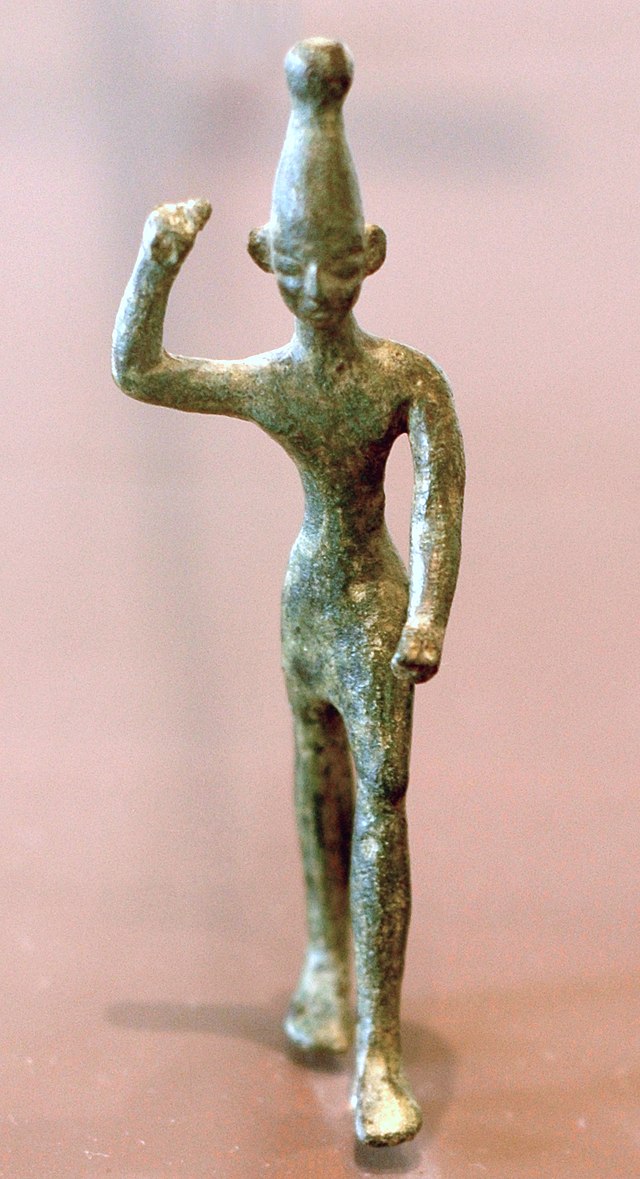
Numbers 25:1-3 ESV
Baal Worship at Peor
25 While Israel lived in Shittim, the people began to whore with the daughters of Moab. 2 These invited the people to the sacrifices of their gods, and the people ate and bowed down to their gods. 3 So Israel yoked himself to Baal of Peor. And the anger of the Lord was kindled against Israel.
Numbers 25:7-9 ESV
7 When Phinehas the son of Eleazar, son of Aaron the priest, saw it, he rose and left the congregation and took a spear in his hand 8 and went after the man of Israel into the chamber and pierced both of them, the man of Israel and the woman through her belly. Thus the plague on the people of Israel was stopped. 9 Nevertheless, those who died by the plague were twenty-four thousand.
Numbers 31:1-2,8-9,5-18 ESV
Vengeance on Midian
31 The Lord spoke to Moses, saying, 2 “Avenge the people of Israel on the Midianites. Afterward you shall be gathered to your people.”
Numbers 31:8-9 ESV
8 They killed the kings of Midian with the rest of their slain, Evi, Rekem, Zur, Hur, and Reba, the five kings of Midian. And they also killed Balaam the son of Beor with the sword. 9 And the people of Israel took captive the women of Midian and their little ones, and they took as plunder all their cattle, their flocks, and all their goods.
Numbers 31:15-18 ESV
15 Moses said to them, “Have you let all the women live? 16 Behold, these, on Balaam's advice, caused the people of Israel to act treacherously against the Lord in the incident of Peor, and so the plague came among the congregation of the Lord. 17 Now therefore, kill every male among the little ones, and kill every woman who has known man by lying with him. 18 But all the young girls who have not known man by lying with him keep alive for yourselves.
The statue above is an idol of Baal, found in Ugarit and is currently on display in the Louvre in Paris, France.
Jesus' fault with the church at Ephesus, a fault followers of God have dealt with since the Exodus, has been revealed in Revelation chapter 2:1-7.
Revelation Chapter 2
The Church in Smyrna

Smyrna, was an ancient city, founded circa 1050 B.C., on the Aegean coast of Anatolia, a Greek province. Smyrna was located at the mouth of the river Hermus, at the end of a deep gulf of the Aegean sea, allowing Greek Merchant ships to travel throughout the Aegean and Mediteraenean seas. Greeks from other places began to migrate in the 4th century B.C., to Smyrna, encouraged by the the importance it held in the eyes of Alexander the Great.
Rome and Greece fought three major wars, ending with Rome conquering Greece at the battle of Corinth in 146 B.C. Smyrna quickly became a metropolis under Roman rule, thriving as a commercial hub and worship center for Greek, Roman gods and the Imperial cult of the Roman emperors, with temples constructed for each throughout the city.
In 29 A.D., seven cities competed for the right to build a Roman Imperial cult temple to the Roman Emperor Tiberius. Smyrna was chosen. It acquired another Imperial cult temple, in 138 A.D., to the Emperor Hadrian. All these were built next to Greek Temples like the Temple of Athena.
The Greco-Turkish War
brings an end to the great metropolis of Smyrna
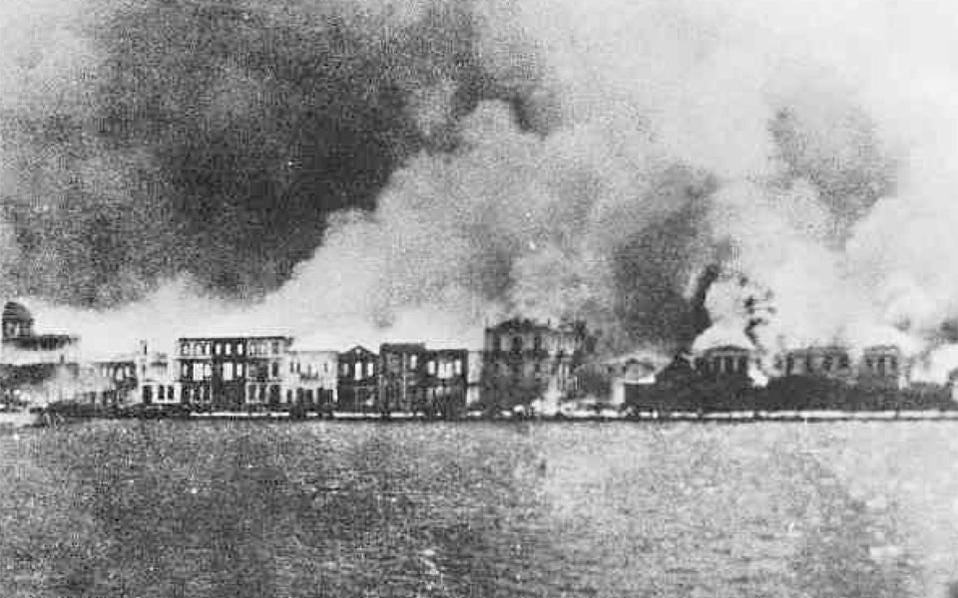
In the waning days of the Ottoman Empire, and the tail end of the Greco-Turkish War (1919-1922), that followed World War I (July 28, 1914 - November 11, 1918), the Greek army was withdrawing from western Turkey, being pushed by the advancing army of the "Young Turks" who were intent on reclaiming "Turkey for the Turks." Smyrna was ransacked and burned to the ground.
Starting on September 13, 1922 and ending on September 17, 1922, Smyrna, burned to the ground. All the monuments, temples, buildings and homes were completely burned to the ground and destroyed.
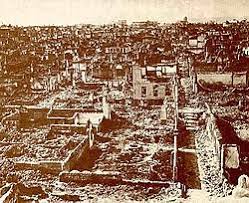
Over 100,000 people died in the razing of Smyrna. This once great city is now an archaeological site in present day Izmir, Turkey.
Smyrna was located 40 miles north of Ephesus, on the Aegean coast. Both cities were among the seven postal districts, located along a circuituous route which made up most of the province of Asia.
The church at Ephesus and Smyrna, are two of the seven churches are addressed in Revelation chapter 2 and 3.
Smyrna was located 40 miles north of Ephesus, on the Aegean coast. Both cities were among the seven postal districts, located along a circuituous route which made up most of the province of Asia.
The church at Ephesus and Smyrna, are two of the seven churches addressed in Revelation chapter 2 and 3.
The church at Smyrna was likely planted by Paul, or one of his co-workers in the ministry of Jesus Christ, in Asia Minor. Unbelieving Jews scattered throughout Asia Minor and Greece, were a problem for Paul and his missionary co-workers
Acts 19:9-10, 20 English Standard Version
9 But when some became stubborn and continued in unbelief, speaking evil of the Way before the congregation, he withdrew from them and took the disciples with him, reasoning daily in the hall of Tyrannus. 10 This continued for two years, so that all the residents of Asia heard the word of the Lord, both Jews and Greeks.
20 So the word of the Lord continued to increase and prevail mightily.
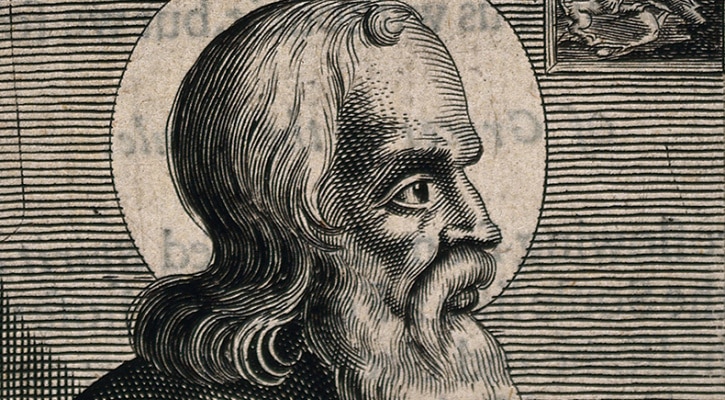
The Church at Smyrna, as was the case in the 1st century "church", would actually have been a collection of small groups of believers meeting at scattered locations throughout the city. The early church father and Martyr Polycarp, was the Bishop of the Smyrna churches.
Polycarp was martyred by burning at the stake and a spear, around 155 A.D., in Smyrna, for refusing to burn incense for and worship the Roman Emperor. There is evidence the Jews from the Smyrna synagogue actually carried logs and built the fire at the stake. The fire wouldn't start raging, so the Romans ran a spear through him, to kill him.
When the Romans offered Polycarp one last chance to worship the Emperor, He replied, "Eighty six years I have served Him, and He has done me no wrong, How then can I blashpeme my King and Savior? You threaten me with a fire that burns for a season, and after a little while is quenched; but your are ignorant of the fire of everlasting punishment that is prepared for the wicked. I bless you Fater, for judging me worthy of this hour, so that in the company of the martyrs I may share the cup of Christ."
Revelation chapter 2
To the Church in Smyrna
Revelation 2:8-11 ESV
To the Church in Smyrna
8 “And to the angel of the church in Smyrna write: ‘The words of the first and the last, who died and came to life.
9 “‘I know your tribulation and your poverty (but you are rich) and the slander of those who say that they are Jews and are not, but are a synagogue of Satan. 10 Do not fear what you are about to suffer. Behold, the devil is about to throw some of you into prison, that you may be tested, and for ten days you will have tribulation. Be faithful unto death, and I will give you the crown of life. 11 He who has an ear, let him hear what the Spirit says to the churches. The one who conquers will not be hurt by the second death.’
Revelation chapter 2 verse 8, Jesus's description of Himself, "the word of the first and the last, who died and came back to life," defeating Death, reminded and assured the believers in Smyrna, that the instant they physically die, the first death, they will be in Paradise, under the altar of God, with all the previous martyrs, who were killed on account of their testimony of Jesus.
Revelation 2:9. The church in Smyrna is not rebuked by Jesus, but rather, He called and encouraged them to endure and persevere through the physical torture by the Romans, without mention of retaliation...
Matthew 5:38-39, 43-44 ESV
Retaliation
38 “You have heard that it was said, ‘An eye for an eye and a tooth for a tooth.’ 39 But I say to you, Do not resist the one who is evil. But if anyone slaps you on the right cheek, turn to him the other also.
Love Your Enemies
43 “You have heard that it was said, ‘You shall love your neighbor and hate your enemy.’ 44 But I say to you, Love your enemies and pray for those who persecute you,
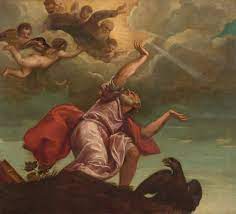
John was exiled to the island of Patmos because of the turmoil caused by unbelieving Jews.
Those claiming to be Jews, but really weren't, had been troubling the churches even after John's exile.
1 John 2:22-23 ESV
22 Who is the liar but he who denies that Jesus is the Christ? This is the antichrist, he who denies the Father and the Son. 23 No one who denies the Son has the Father. Whoever confesses the Son has the Father also.
John 8:42-44 ESV
42 Jesus said to them, “If God were your Father, you would love me, for I came from God and I am here. I came not of my own accord, but he sent me. 43 Why do you not understand what I say? It is because you cannot bear to hear my word. 44 You are of your father the devil, and your will is to do your father's desires. He was a murderer from the beginning, and does not stand in the truth, because there is no truth in him. When he lies, he speaks out of his own character, for he is a liar and the father of lies.
Revelation chapter 2 verse 10, Jesus tells them imprisonment, torture and death will continue to increase and worsen. He reminds them their enemy is not the false Jews or the Roman soldiers, but Satan...
Ephesians 6:12 ESV
12 For we do not wrestle against flesh and blood, but against the rulers, against the authorities, against the cosmic powers over this present darkness, against the spiritual forces of evil in the heavenly places.
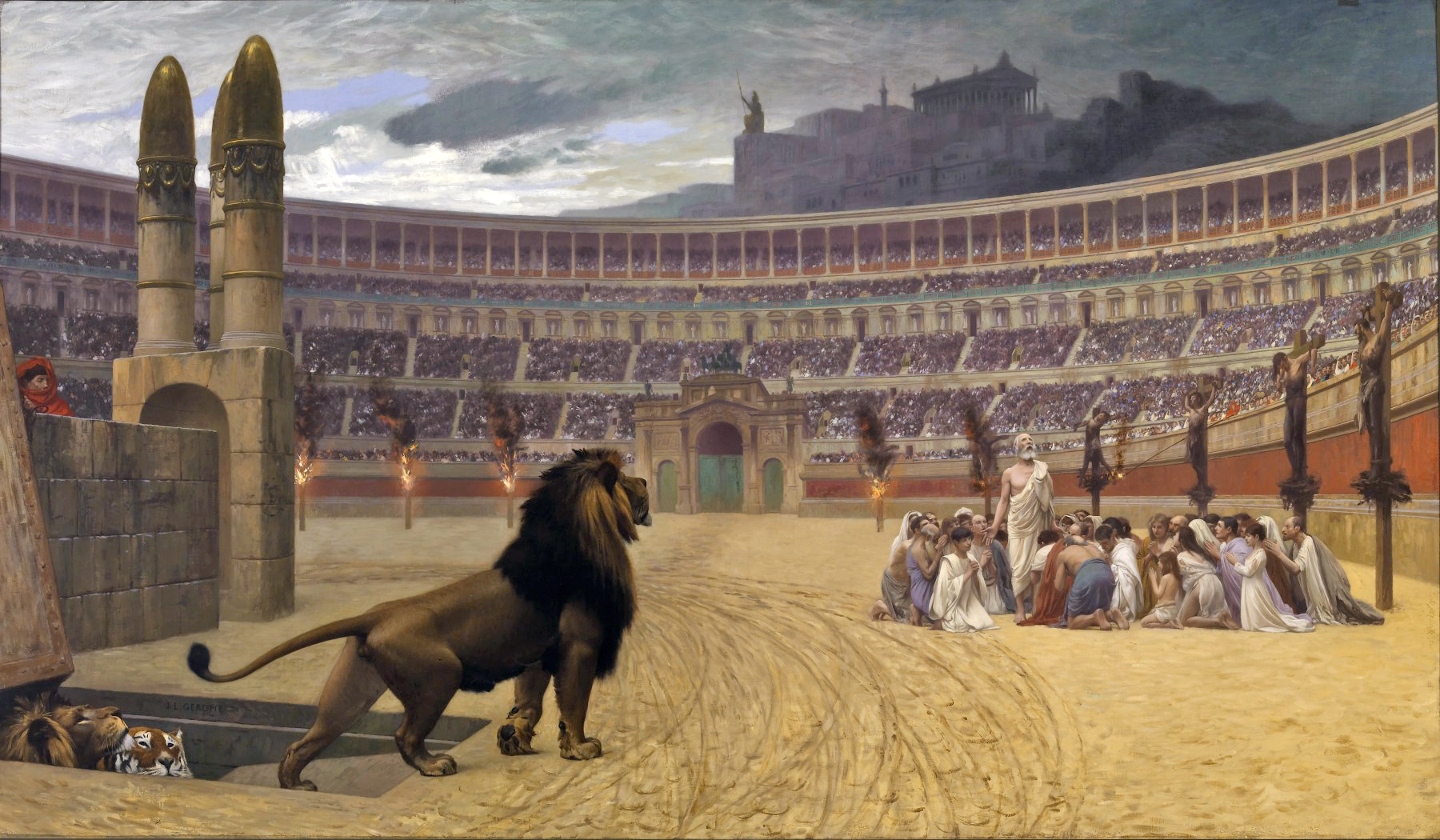
Jesus also tells them, in verse 10, not to fear the death they are soon to suffer at the hands of Romans. Rather be faithful unto death and receive the crown of life.
Revelation chapter 2, verse 11, Jesus warns them, that physical death, the first death, is just the doorway to eternity with Jesus Christ.
Luke 23:42-43 ESV
42 And he said, “Jesus, remember me when you come into your kingdom.” 43 And he said to him, “Truly, I say to you, today you will be with me in paradise.”
They are reassured those who remain faithful and courageous will conquer their fear, and the second death won't hurt you.
Revelation 21:8 ESV
8 But as for the cowardly, the faithless, the detestable, as for murderers, the sexually immoral, sorcerers, idolaters, and all liars, their portion will be in the lake that burns with fire and sulfur, which is the second death.”
The Church in Pergamum
Pergamum was an ancient city of Asia Minor, now the modern day town of Bergama, in Mysia, a part of western Turkey. Located 16 miles east of the Aegean Sea, along the Caicus River valley, situated on a sharp rugged hill rising 1,000 above the valley floor. The area was first settled around 2,000 B.C.
In John's day, the Roman proconsul, the judge of all things in that area, resided in Pergamum. Christians refusing to worship the Emperor in that vicinity were brought there for judgment.
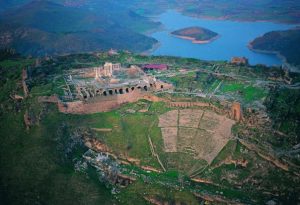
Pergamum was an ancient city of Asia Minor, now the modern day town of Bergama, in Mysia, a part of western Turkey. Located 16 miles east of the Aegean Sea, along the Caicus River valley, situated on a sharp rugged hill rising 1,000 above the valley floor. The area was first settled around 2,000 B.C.
In John's day, the Roman proconsul, the judge of all things in that area, resided in Pergamum. Christians refusing to worship the Emperor in that vicinity were brought there for judgment.
This is the actual Great Altar of Pergamum, dismantled, transported and rebuilt at the Pergamum Museum in Berlin, Germany. The museum can be visited on-line here.
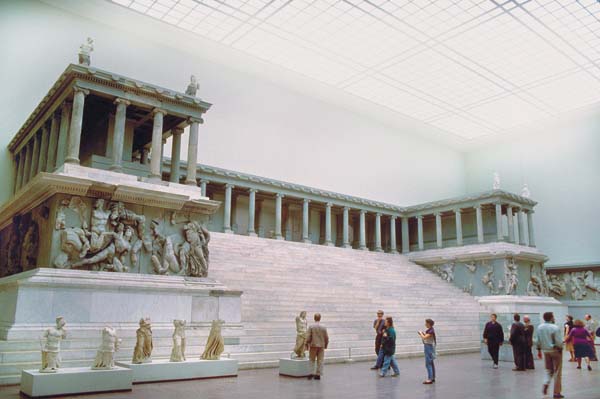
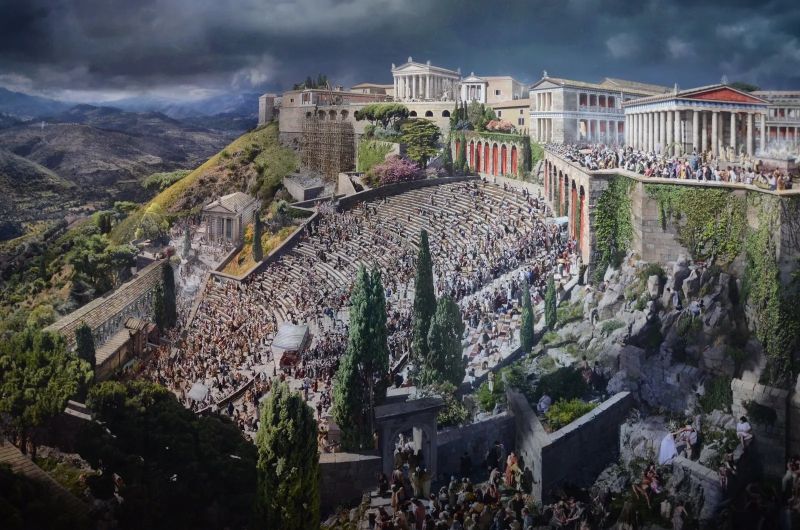
Artistically produced 360 degree representation of the Pergamum Acropolis during John's days. This, and many actual portions of buildings removed from Pergamum and rebuilt at the Pergamum Museum in Berlin, Germany.
The church in Pergamum
Revelation chapter 2:12-17
Revelation 2:12-17 ESV
To the Church in Pergamum
12 “And to the angel of the church in Pergamum write: ‘The words of him who has the sharp two-edged sword. 13 “‘I know where you dwell, where Satan's throne is. Yet you hold fast my name, and you did not deny my faith even in the days of Antipas my faithful witness, who was killed among you, where Satan dwells. 14 But I have a few things against you: you have some there who hold the teaching of Balaam, who taught Balak to put a stumbling block before the sons of Israel, so that they might eat food sacrificed to idols and practice sexual immorality. 15 So also you have some who hold the teaching of the Nicolaitans. 16 Therefore repent. If not, I will come to you soon and war against them with the sword of my mouth. 17 He who has an ear, let him hear what the Spirit says to the churches. To the one who conquers I will give some of the hidden manna, and I will give him a white stone, with a new name written on the stone that no one knows except the one who receives it.’
In Revelation chapter 2, verse 12, above, identifies Jesus, the Word of God, as having the sharp two-edged sword, that righteously judges the heart, thoughts and circumstances of all people. John alludes to this title and characteristic of Jesus, found in the book of John and Hebrews.
John 1:1 ESV
The Word Became Flesh
1 In the beginning was the Word, and the Word was with God, and the Word was God.
Hebrews 4:12-13 ESV
12 For the word of God is living and active, sharper than any two-edged sword, piercing to the division of soul and of spirit, of joints and of marrow, and discerning the thoughts and intentions of the heart. 13 And no creature is hidden from his sight, but all are naked and exposed to the eyes of him to whom we must give account.
John doesn't want us to imagine Jesus, the Son of Man, has a sword protruding from his mouth, but rather that, as Hebrew 4, describes, His words cut deeply into the very soul of a man and His reproof cuts deeply, and righteously.
Revelation chapter 2, verse 13, "I know where you dwell". Jesus knows all there is to know about the slander of the Jews, their physical persecution by the Romans; the local residents' intense worship of the Roman Emperor and many Greco-Roman gods. Jesus also knows every thought and intention of the hearts of the believers in Pergamum.
Rev 2:13, "where Satan's throne is", alludes to the ancient near eastern people's understanding that "a throne", is the same as "an altar", a "seat of power", signifying dominion over people. Pergamum was such a place.
The New Testament was originally written in Greek, the prominent language of people during the time it was written. The Greek wording of Revelation 2:13 suggests John expected Christians of that era to understand what he was alluding to, either figuratively or a literal place. There is no specific place mentioned precisely as where Satan's throne , however, the Roman Proconsul, the judge, of the province where Pergamum was located resided there, making Pergamum the "seat" of the Roman government who held "dominion" over the whole world during New Testament times.
False teachings of Balaam and the Nicolaitans, idol worshipping and sexual immorality among the church in Pergamum
Revelation Chapter 2:14-16
The discussion of these false teachings, idol worshipping and sexual immorality can be found in the discussion about the Church in Smyrna, Revelations chapter 2, above.
Hidden manna
Revelations 2:17
Revelation 2:17 ESV
17 He who has an ear, let him hear what the Spirit says to the churches. To the one who conquers I will give some of the hidden manna, and I will give him a white stone, with a new name written on the stone that no one knows except the one who receives it.’
During the Exodus of the nation of Israel from captivity in Egypt, their disobedience to God for refusing to enter the Promised Land of Canaan, resulted in God made them wander in the desert wilderness for forty years. There was no food or water in that desert, but God provided food in the form of manna. That manna was considered food of the angels.
Exodus 16:4,31,35 ESV
4 Then the Lord said to Moses, “Behold, I am about to rain bread from heaven for you, and the people shall go out and gather a day's portion every day, that I may test them, whether they will walk in my law or not. 31 Now the house of Israel called its name manna. It was like coriander seed, white, and the taste of it was like wafers made with honey.
35 The people of Israel ate the manna forty years, till they came to a habitable land. They ate the manna till they came to the border of the land of Canaan.
Manna and the marriage supper of the Lamb of God
In Revelation chapter 2, John alludes to that manna being a "type", or "foreshadowing" of the Messianic Banquet, Marriage Supper of the Lamb of God, Jesus, at the end of days.
Revelation 19:6-9 ESV
The Marriage Supper of the Lamb
6 Then I heard what seemed to be the voice of a great multitude, like the roar of many waters and like the sound of mighty peals of thunder, crying out, “Hallelujah! For the Lord our God the Almighty reigns. 7 Let us rejoice and exult and give him the glory, for the marriage of the Lamb has come, and his Bride has made herself ready; 8 it was granted her to clothe herself with fine linen, bright and pure”— for the fine linen is the righteous deeds of the saints. 9 And the angel said to me, “Write this: Blessed are those who are invited to the marriage supper of the Lamb.” And he said to me, “These are the true words of God.”
Manna, the Bread of Life, Jesus
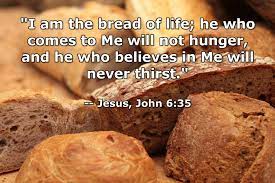
John also alludes to the manna as a type, a foreshadowing of Jesus being the Bread of Life, that God sent to grant eternal life to all who believed in Jesus.
God the Father, sent Jesus, God the Son, to be the Lamb of God, the sacrifice required so that man's might be forgiven, in order to receive eternal life in heaven, as opposed to eternal torment in hell, for all those who don't believe in Jesus.
John 6:31-35 ESV
31 Our fathers ate the manna in the wilderness; as it is written, ‘He gave them bread from heaven to eat.’” 32 Jesus then said to them, “Truly, truly, I say to you, it was not Moses who gave you the bread from heaven, but my Father gives you the true bread from heaven. 33 For the bread of God is he who comes down from heaven and gives life to the world.” 34 They said to him, “Sir, give us this bread always.” 35 Jesus said to them, “I am the bread of life; whoever comes to me shall not hunger, and whoever believes in me shall never thirst.
The white stone with a new name
The color white, in Revelation, symbolizes righteousness, purity.
Scholars are divided on whether the wording, "white stone with a new name", points to a divine name, the name of God or the heavenly Zion; or to the new name of the overcoming Christian the stone was being given to. Isaiah 62:2 refers to Zion, Isaiah 65:15 refers to believers.
Isaiah 62:2 ESV
2 The nations shall see your righteousness, and all the kings your glory, and you shall be called by a new name that the mouth of the Lord will give.
Isaiah 65:15 ESV
15 You shall leave your name to my chosen for a curse, and the Lord God will put you to death, but his servants he will call by another name,
Revelation Chapter 2
Two important verses to follow
Proverbs 3:5-6 ESV
5 Trust in the Lord with all your heart, and do not lean on your own understanding.
6 In all your ways acknowledge him, and he will make straight your paths.
Romans 12:1-2 ESV
A Living Sacrifice
12 I appeal to you therefore, brothers, by the mercies of God, to present your bodies as a living sacrifice, holy and acceptable to God, which is your spiritual worship. 2 Do not be conformed to this world, but be transformed by the renewal of your mind, that by testing you may discern what is the will of God, what is good and acceptable and perfect.